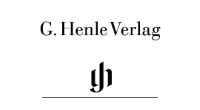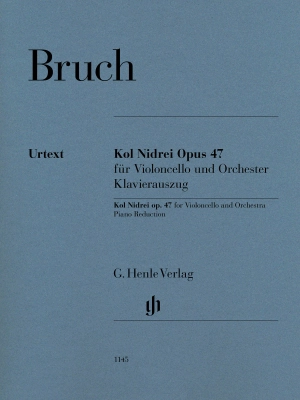Opens in a new window
G. Henle Verlag Kol Nidrei op. 47 for Violoncello and Orchestra (Piano Reduction) - Bruch/Oppermann - Cello/Piano - Sheet Music
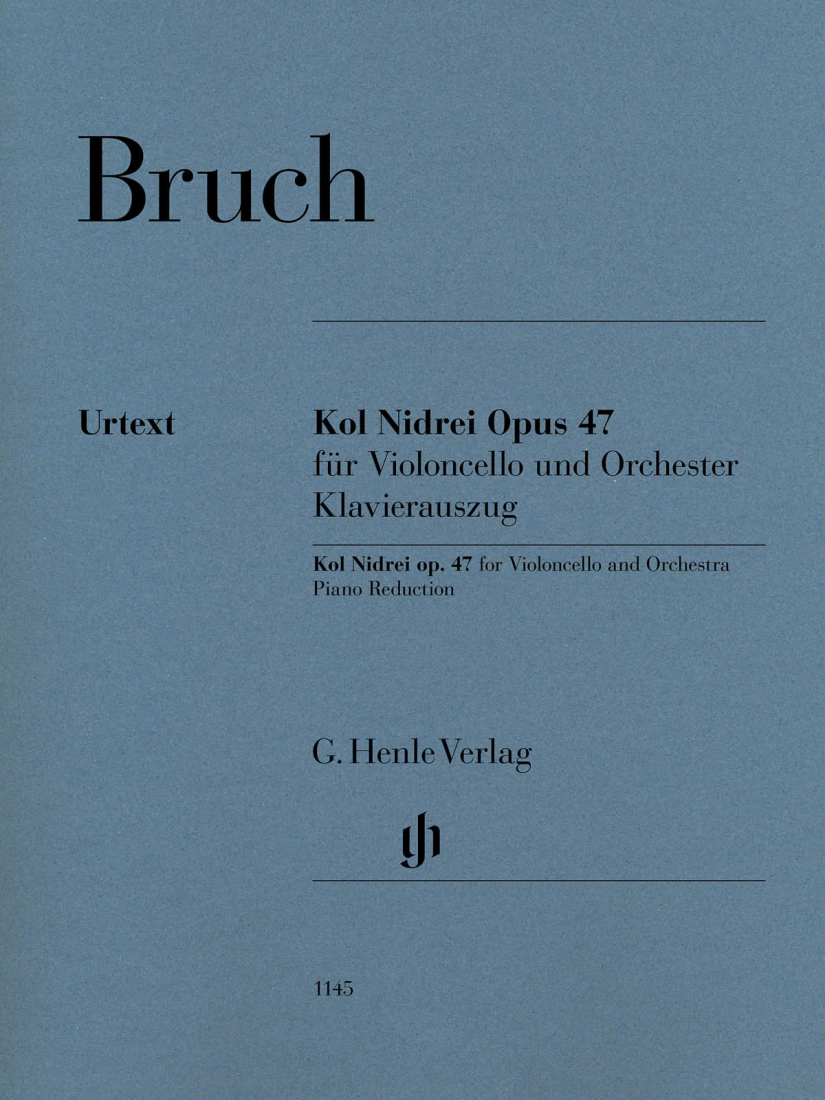
Additional Photos:
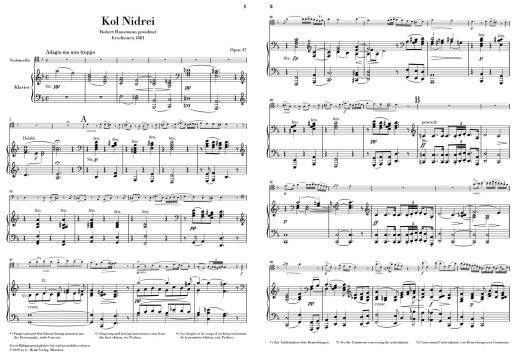
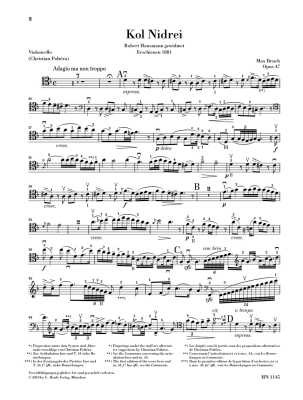
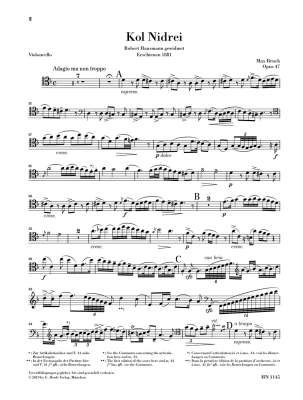
- Author/Composer:
- BRUCH, MAX
- Instrumentation:
- CELLO
- Model #:
- 51481145
Editors: Annette Oppermann
Piano Reduction: Johannes Umbreit
Cello Fingering/Bowing: Christian Poltera
Format: Softcover, Urtext Edition
Instrumentation: Cello and Piano Reduction
Level: Medium
Aside from his popular Violin Concerto no. 1, "Kol Nidrei" numbers among Max Bruch's most famous compositions. The melancholy "Adagio after Hebrew melodies" was written in 1880 for the cellist Robert Hausmann. It treats two old Jewish songs whose extraordinary beauty proved deeply moving to the Protestant Bruch, by his own admission. The tenor cello sound is the ideal medium for the voice of a Jewish cantor, and thus to this day "Kol Nidrei" offers every cellist a wonderful opportunity to make the instrument "sing". In this text, based on the first edition of 1881, "Kol Nidrei" appears for the first time in an Urtext edition substantiated by scholarly research, for which not just the musical sources, but also numerous letters and documents from the Max Bruch Archive were consulted. Christian Poltera was able to be procured for the markings in the solo part.
Q & A
There are currently no questions for this product.
Reviews
There are currently no reviews for this product. Be the first to write one!

